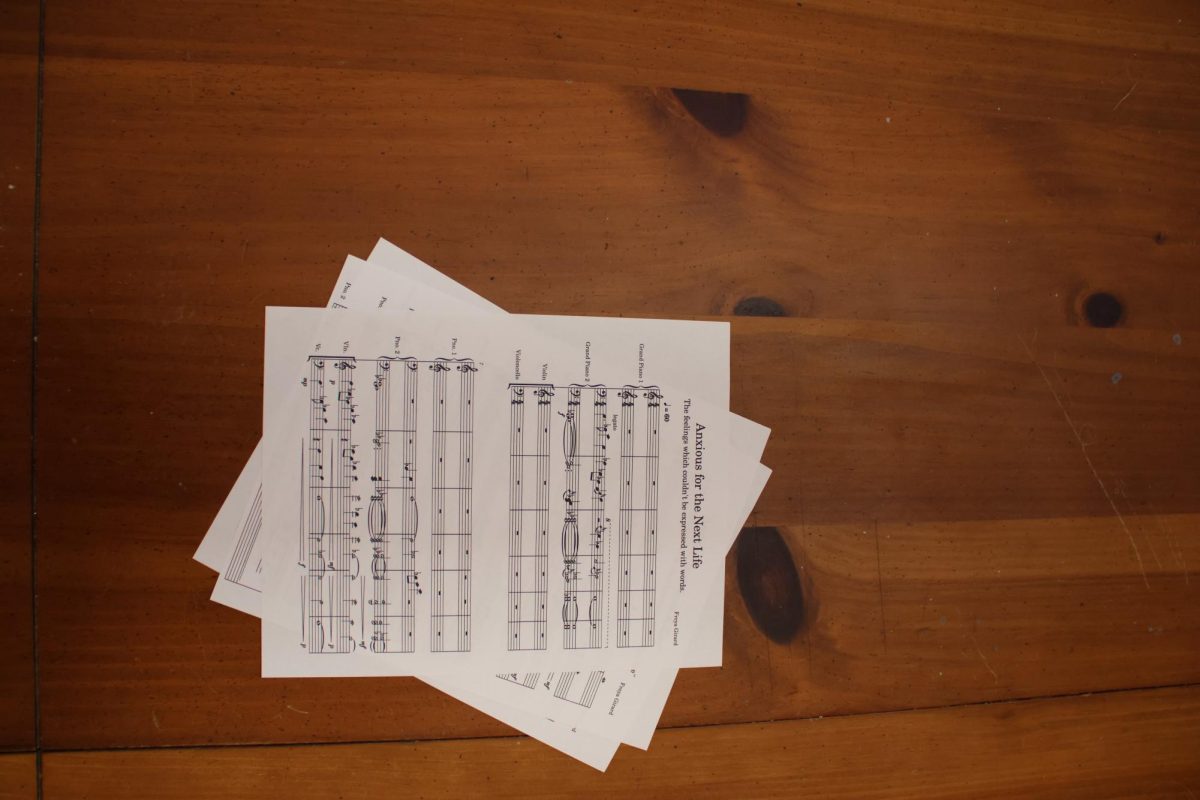Drugs directly affect audiences at concerts
Substances continue to play a predominant role at concerts
March 12, 2014
The band walks out to a crowd that won’t be this energized until the encore. The music begins and then, the familiar concert smell breezes in.
The presence of drugs at concerts is inescapable. There will always be at least one person in the GA section smoking pot, as smoke spirals toward the venue’s ceiling.
But the drug use isn’t anything new.
“In the ’70s, early ’70s, whenever I would go to a concert — and I went to a lot of concerts — there was a pervasive smell of marijuana and usually you could see someone passing a marijuana joint down the rows,” gifted facilitator Janette Michaels said.
Not only is marijuana use characteristic of the typical concert experience, but at some shows the use of molly (the “purer” form of MDMA), ecstasy, ketamine, GHB, LSD, acid, roofies and other prescription opiates is just as common. In some instances, harsher drugs such as methamphetamines, cocaine and LSD, have been blended into a cocktail sold as molly.
“Anything you could imagine [is used],” school resource officer Mike Cobb said. “Marijuana, LSD, ecstasy, heroin, opium — anything you could imagine, this town has — meth, there is a high variety of what is used everywhere.”
Roofies, GHB and ketamine are regarded as date rape drugs and their presence at concerts is shown to be directly affecting women and some men in negative ways.
“I haven’t really seen any drug use at concerts besides marijuana, although I could surmise that people were under the influence of some other drugs, hallucinogens,” Michaels said.
Celebrity Miley Cyrus is currently touring her album, “Bangerz.” She has added additions to her merchandise that most wouldn’t have expected from her since the ex-actress started on Disney Channel. Not only is the songstress promoting marijuana use, but she is now selling 24-karat gold rolling papers on tour.
Other musicians promote drug use by using drugs in front of audiences.
“At Liberty Hall, I saw George Clinton and the Parliament Funkadelic, and joints were going into the crowd and back up to the stage,” gifted facilitator Tom Birt said. “I saw some Lawrence High kids there, too.”
Though some artists advocate drug use, fans see drug use at concerts as a disadvantage.
“I think personally, [drug use] blurs and ruins the experience,” sophomore Jill Baer said.
There are fans who specifically avoid drug use or the use of any mind altering substances.
“I’m a straight edge, so I don’t believe that drug use is for me,” freshman Griffin Nelson said.
Those who are ‘straight edge’ are typically interested in punk music, and have a goal of purity. This purity being of the body and mind, resulting in avoidance of alcohol and drugs — even over-the- counter aspirin.
Harder drug use has classically belonged to the sex, drugs and rock n’ roll lifestyle.
“It’s my wife, it’s my life,” Velvet Underground singer Lou Reed crooned in the Velvet Underground’s 1967 song “Heroin.”
The glorification of drug use by musicians influences young people whose perceptions of drugs are permeable, especially when full medical information isn’t available.
“My concerns are that I think that a lot of people hear music and watch music videos and figure that it’s not so bad because someone is doing it,” Cobb said. “They don’t always see the background of a drug. They don’t see the daily uses and the daily problems associated like [police] do. While it seems like a good idea to use it at a concert or use it as a musician, the reality is that most musicians later on in life have to go to rehab or don’t last very long in life.”
Paper Buffalo drummer Kainen Spooner, who performs with LHS students, sees concert drug use in a more personal, philosophical way.
“It’s not my body, not my damn business,” Spooner said. “I think concert drug use is absolutely fine. Drugs may be harmful to your body and mind, but no one can deny that they heighten an experience, or take one away in the case of alcohol or benzodiazepines. Really, if you’re the only one using drugs to have fun, and not due to some sort of escapism or independence, then I really see barely any harm at all.”
Whether or not it’s someone else’s body or one’s own, Cobb warns that knowledge is the best way to handle the situation.
“There’s dangers to each and every drug, so if you’re planning on trying to use something it might not be a bad idea to research to see what bad things happened to people,” Cobb said. “As a police officer, I can’t tell people that these are things that people can use legally, they’re all illegal. I’d basically say don’t do it, but in reality if you choose to do it, you might want to know what the risks are.”














